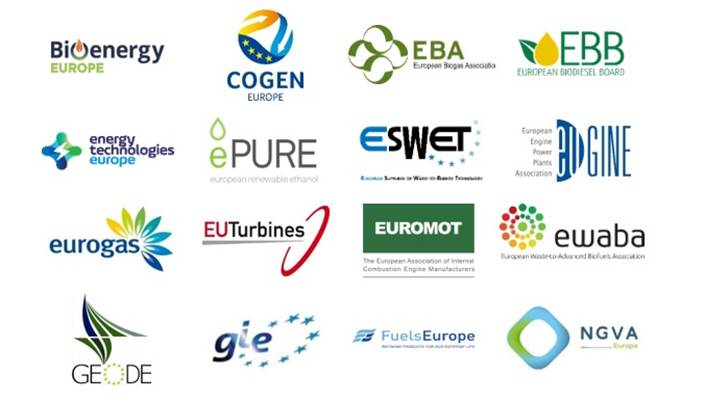December 14, 2020

We, the signatories of this statement, represent sectors of major importance for European economic development and wealth. We make the move to a competitive, climate neutral economy in Europe possible and support an EU taxonomy that helps accelerate investments in sustainable solutions.
We are strongly concerned about the European Commission’s draft Taxonomy Delegated Regulation proposal1, which unless changed, will prevent investors from making fully informed decisions on their investments, undermine affordable financing and jeopardize energy supply security at acceptable cost, which are key to maintain jobs in Europe and avoid carbon leakage.
We urge the Commission to better address the following principles in its proposal:
1. The future Taxonomy should help implement adopted EU climate and energy legislation.
A predictable policy framework is key to secure a successful economic and industrial transition ensuring long-term sustainability. Businesses, governments and financial market participants must not face different targets, standards or thresholds that will disrupt markets, distort competition and result in burdensome and costly implementation. Coherence should also be ensured with existing investment classifications, for example the European Investment Bank’s Energy Lending Policy. The Commission proposal departs from existing EU legislation and undermines investment predictability, which may prevent the investments that will enable a sustainable transition to climate neutrality.
2. The future Taxonomy’s criteria and thresholds must be impact assessed prior to their application.
The Commission proposal presents serious inconsistencies as well as technical and methodological flaws that result in an unlevel playing field and would not allow businesses and investors making fully informed investment decisions in solutions that meet their varying needs. Given the expected major impact on the European economy, technical screening criteria must be properly developed and impact assessed. Prior to application, they also must receive scrutiny by the co-legislators and stakeholders, in line with the Better Regulation Agenda. As such, a proper stakeholder involvement in all relevant fora has not been sufficiently considered so far and urgently needs to be addressed to avoid unintended consequences for the sectors in which EU Taxonomy will apply.
3. The future Taxonomy should guarantee a transitional, evidence-based and pragmatic approach.
EU countries will have different starting points entailing varying investment capabilities and needs. The EU Taxonomy must leave sufficient flexibility to consider today’s technological development, existing infrastructure and current energy mixes, while offering development pathways for low-carbon and renewable energy sources and technologies. Investments considered ‘sustainable’ today should not become ‘unsustainable’ overnight because they are not listed or do not fit the Taxonomy definition. Economic sectors and Member States must be empowered through adequate screening criteria, including for transitional activities, to embark on progressive and achievable transition pathways, in line with EU climate and energy goals. Above all, no one should be left behind as outlined in the European Green Deal.
For more information:
Press contact:
Gabrielle Lelievre
Communication Advisor
T +32 478 78 34 83
gabrielle.lelievre@gie.eu
















































